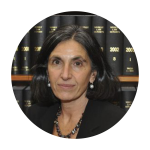Date / time
Date(s) - 10/05/2022
6:00 pm - 8:00 pm
Location
The Honourable Society of Lincoln's Inn
Categories
JUSTICE is pleased to invite you to a discussion on how customary interactions with international law may be enriched by having a deeper understanding of non-Western cultures.
This event will address the African value of Ubuntu (“I am because we are”), which conveys the idea that one’s humanity is inextricably connected to others through notions of community, interdependence, solidarity and shared dignity. Ubuntu has existed, in different linguistic renditions, in various African indigenous justice systems for centuries and parallels can be drawn with notions of Western dignity, Chinese Confucianism, the Germanic notion of Bildung and the equity doctrine under English law.
Chaired by the Rt Honourable Lady Justice Ingrid Simler, our panel includes Professor Sandra Fredman QC (Hon), Guglielmo Verdirame QC, and Dr Ndjodi Ndeunyema.
Our panel will consider whether Ubuntu offers an opportunity to enhance international law through a powerful message that can help society collectively navigate issues of humanity, including matters such as the impact of climate change. The conversation also will reflect on the recently published book, Re-invigorating Ubuntu Through Water: A Human Right to Water Under the Namibian Constitution, written by Skadden trainee solicitor Dr Ndjodi Ndeunyema, who will join us to discuss whether there is a human right to water under international law. The book is based on Dr Ndeunyema’s PhD research that was awarded the inaugural 2021 Subedi Prize for the best law doctoral thesis at the University of Oxford.
We are grateful to Skadden, Arps, Slate, Meagher & Flom (UK) LLP for supporting this event.
We are currently operating a waiting list for this event – please email events@justice.org.uk to be added.
Chair: the Rt. Hon. Lady Justice Simler
 Dame Ingrid Simler
Dame Ingrid Simler
Dame Ingrid Simler was called to the Bar by Inner Temple in 1987, having read law at Cambridge University and completed a post-graduate diploma in EU law at the Europa Institute, University of Amsterdam. She practised at the Bar at Devereux Chambers (where she became Head of Chambers before becoming a judge). She was appointed to the Attorney General’s Civil Panel A in 2001 and as Junior Counsel to the Inland Revenue (Common Law) in 2002. She took Silk in 2006.
In 2002 she was appointed Recorder on the SE circuit. She was appointed as a Deputy High Court Judge in 2010. She became a Judge of the High Court (Queen’s Bench Division) in October 2013. In January 2015 she was appointed President of the Employment Appeal Tribunal for a three-year term which ended on 31 December 2018.
Having served as High Court Liaison Judge for Diversity, she was appointed chair of the Diversity Committee of the Judges Council in 2019. She is also a member of the Civil Executive Team chaired by the Deputy Head of Civil Justice, reporting to the Master of the Rolls. She was sworn in as a Lady Justice of the Court of Appeal in June 2019.
 Professor Sandra Fredman QC (Hons)
Professor Sandra Fredman QC (Hons)
Sandra Fredman is Professor of the Laws of the British Commonwealth and the USA at the University of Oxford. She is a Fellow of the British Academy and became a Queen’s Council (honoris causa) in 2012. In 2012, she founded the Oxford Human Rights Hub, of which she is the director. She has published widely and has numerous peer reviewed publications in the fields of gender equality, labour law, and human rights. Her books include Comparative Human Rights (OUP, 2018); Human Rights Transformed (OUP 2008); Discrimination Law (OUP, 3rd ed 2022); Women and the Law (OUP, 1997); The State as Employer (Mansell, 1988) with Gillian Morris and Labour Law and Industrial Relations in Great Britain (2nd ed, Kluwer, 1992) with Bob Hepple. She edited Age as an Equality Issue (Hart, 2003) with Sarah Spencer, and Discrimination and Human Rights: the Case of Racism (OUP, 2001. She has been an expert advisor on equality for a variety of governments and organizations; most recently, she was a member of the expert drafting group of the Abidjan Principles on the Right to Education in the context of Privatization.
 Dr Ndjodi Ndeunyema
Dr Ndjodi Ndeunyema
Dr Ndjodi Ndeunyema is currently a trainee solicitor at Skadden, Arps, Slate, Meagher & Flom in London. He obtained Doctor of Philosophy in Law from Oxford University with his thesis being awarded the Inaugural Professor Surya Subedi Prize for the best Oxford Law thesis in 2021. He was a Modern Law Review Early Career Research Fellow at Oxford until 2021 and has since published his monograph, ‘Re-Invigorating Ubuntu Through Water: A Human Right to Water under the Namibian Constitution’ with Pretoria University Law Press.
As a Rhodes Scholar at Oxford University, he also obtained a MPhil in Law (Research), the BCL, and MSc in Criminology and Criminal Justice, after reading undergraduate law degree is from the University of Namibia. From 2017 to 2021, he was Research Director at the Oxford Human Rights Hub. He served as a co-founding editor of the University of Oxford Human Rights Hub Journal, and as editor of the Oxford University Commonwealth Law Journal from 2016 to 2019.
He has published in leading journals including the Journal of African Law, Michigan Journal of International Law, and Global Journal of Comparative Law. He also served Legal Fellow at the African Court of Human and Peoples’ Rights, Tanzania.
 Professor Guglielmo Verdirame QC
Professor Guglielmo Verdirame QC
Professor Guglielmo Verdirame QC (Twenty Essex) has been in practice at the English Bar since 2006. He specialises in public international law, and has acted for both governments, including the British one, and private parties in high-profile domestic and international law proceedings. For many years he combined his professional career at the Bar with academia. is He is still Professor of International Law at King’s College London, although currently only on a part-time basis. Before King’s, he held full-time academic appointments at Oxford and Cambridge, and has been a Visiting Professor at Harvard Law School and at Columbia Law School. He has written extensively in the field of public international law, human rights, the law of international organisations, and legal theory.
